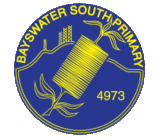Mathematics
Bayswater South Primary School engages students in mathematics through a 50/50 Content Language Integrated Learning (CLIL). This sees all students from Foundation-Year 6 learning mathematics through the German language. Although the language of Mathematics is German, the students’ progress along the continuum provided by the Victorian Curriculum.
"Pure mathematics is, in its own way, the poetry of logical ideas."
Albert Einstein

Where possible, the learning of Mathematics is linked to Units of Inquiry to ensure that our students understand the purpose behind their learning. When links are unable to be made, Mathematics can be taught as a ‘stand alone’ subject. This allows teachers to focus on mathematical concepts, content and understandings and to monito the growth of each individual student.
Bayswater South Primary School bases its Mathematics curriculum on Vic Curriculum. Vic Curriculum provides a single curriculum for levels Foundation (Prep) to Year 10. This curriculum offers flexibility for teachers to tailor their teaching in ways that provides relevant and engaging learning and assessment opportunities for all students, regardless of their abilities.
Vic Curriculum: Mathematics is organised around the interaction of three content strands and four proficiency strands. The content strands are Number and Algebra, Measurement and Geometry, and Statistics and Probability. They describe what is to be taught and learnt. The proficiency strands are Understanding, Fluency, Problem Solving, and Reasoning. They describe how content is explored or developed, that is, the thinking and doing of Mathematics.
The school prides itself on keeping up with the most recent developments in Mathematics education. To complement the Vic Curriculum program, we have accumulated a large collection of professional and created resources and equipment, such as graded problem-solving kits, which students use in teacher directed-, independent and group work. Our hands-on, sequential approach to Mathematics enriches students’ learning experiences, and allow for “real life” application.
We have a commitment to technology in Mathematical learning with school-wide access to Mathletics and other online assessment/learning programs.
Mathematics Philosophy
Mathematics provides a universal language in which to explain and analyse the world around us. The role of mathematics in the primary years of schooling is to assist learners to develop along the continuum from concrete understandings through to abstract understandings. This continuum is supported by the four proficiencies of Understanding, Fluency, Problem Solving and Reasoning. These proficiencies are fundamental to learning Mathematics across the all three strands (as provided by the Victorian Curriculum) Number and Algebra, Statistics and Probability, Measurement and Geometry. A commitment to, and the appreciation of, the role of mathematics as a vehicle for inquiry into disciplines and a trans-disciplinary learning is key to our beliefs as a community of learners. This belief drives innovation, creativity and technological change and will see learners at Bayswater South Primary School develop the life-long learning skills they require to become global citizens in the 21st century.
Mathematics Profile (context)
Bayswater South Primary School provides a unique context for the learning and teaching of Mathematics. The school engages students in mathematics through a 50/50 Content Language Integrated Learning (CLIL). This sees all students from Prep-Year 6 learning mathematics through the German language. Although the language of Mathematics is German, the students’ progress along the continuum provided by the Victorian Curriculum.
Aims
Through engagement with Mathematics at Bayswater South Primary School, students will:
- Develop confidence, interest, and an appreciation for mathematics
- Recognise the importance of mathematics as a functional language of society
- Acquire mathematical skills, knowledge, and understandings
- Develop critical thinking, social, communication, self-management, and research skills
- Develop the understanding, fluency, problem solving and reasoning skills when working mathematically
- Build a fundamental base of problem-solving skills that underpin an inquiry into mathematics
- Use mathematics as a vehicle for inquiry both within and outside of the Programme of Inquiry
- Reflect on their learning
Mathematics planning, teaching, and learning at Bayswater South Primary School will:
Place the learner at the centre of all decision making
Be grounded in developmental appropriate practice
Be based on best practice, current research and evidence about how students learn
Be delivered in the German language
Where possible, be grounded in, and draw meaningful trans-disciplinary links to, the Programme of Inquiry
Be linked to real-life and authentic contexts
Always be guided by formative assessment
Target the individual needs of each learner
Click here to see the Victorian Education Department’s Numeracy Portal with activities, programs, and resources for teachers, students and families.

You must be logged in to post a comment.